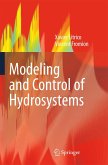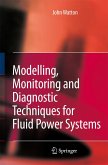This book has been written for graduate students, scientists and engineers who need in-depth theoretical foundations to solve two-phase problems in various technological systems. Based on extensive research experiences focused on the fundamental physics of two-phase flow, the authors present the detailed theoretical foundation of multi-phase flow thermo-fluid dynamics as they apply to a variety of scenarios, including nuclear reactor transient and accident analysis, energy systems, power generation systems and even space propulsion.
This book is intended to be an introduction to the theory of thermo-fluid dynamics of two-phase flow for graduate students, scientists and practicing engineers seriously involved in the subject. It can be used as a text book at the graduate level courses focused on the two-phase flow in Nuclear Engineering, Mechanical Engineering and Chemical Engineering, as well as a basic reference book for two-phase flow formulations for researchers and engineers involved in solving multiphase flow problems in various technological fields. The principles of single-phase flow fluid dynamics and heat transfer are relatively well understood, however two-phase flow thermo-fluid dynamics is an order of magnitude more complicated subject than that of the sing- phase flow due to the existence of moving and deformable interface and its interactions with the two phases. However, in view of the practical importance of two-phase flow in various modem engineering technologies related to nuclear energy, chemical engineering processes and advanced heat transfer systems, significant efforts have been made in recent years to develop accurate general two-phase formulations, mechanistic models for interfacial transfer and interfacial structures, and computational methods to solve these predictive models.
This book is intended to be an introduction to the theory of thermo-fluid dynamics of two-phase flow for graduate students, scientists and practicing engineers seriously involved in the subject. It can be used as a text book at the graduate level courses focused on the two-phase flow in Nuclear Engineering, Mechanical Engineering and Chemical Engineering, as well as a basic reference book for two-phase flow formulations for researchers and engineers involved in solving multiphase flow problems in various technological fields. The principles of single-phase flow fluid dynamics and heat transfer are relatively well understood, however two-phase flow thermo-fluid dynamics is an order of magnitude more complicated subject than that of the sing- phase flow due to the existence of moving and deformable interface and its interactions with the two phases. However, in view of the practical importance of two-phase flow in various modem engineering technologies related to nuclear energy, chemical engineering processes and advanced heat transfer systems, significant efforts have been made in recent years to develop accurate general two-phase formulations, mechanistic models for interfacial transfer and interfacial structures, and computational methods to solve these predictive models.
From the reviews:
"This version contains a lot of new material, including a model for interfacial transport, and updated versions of the models for interfacial force and heat transfer. Because of this, it will become a staple in multiphase flow problems ... at the engineering level." (Donald A. Drew, Mathematical Reviews, Issue 2009 f)
"This version contains a lot of new material, including a model for interfacial transport, and updated versions of the models for interfacial force and heat transfer. Because of this, it will become a staple in multiphase flow problems ... at the engineering level." (Donald A. Drew, Mathematical Reviews, Issue 2009 f)








